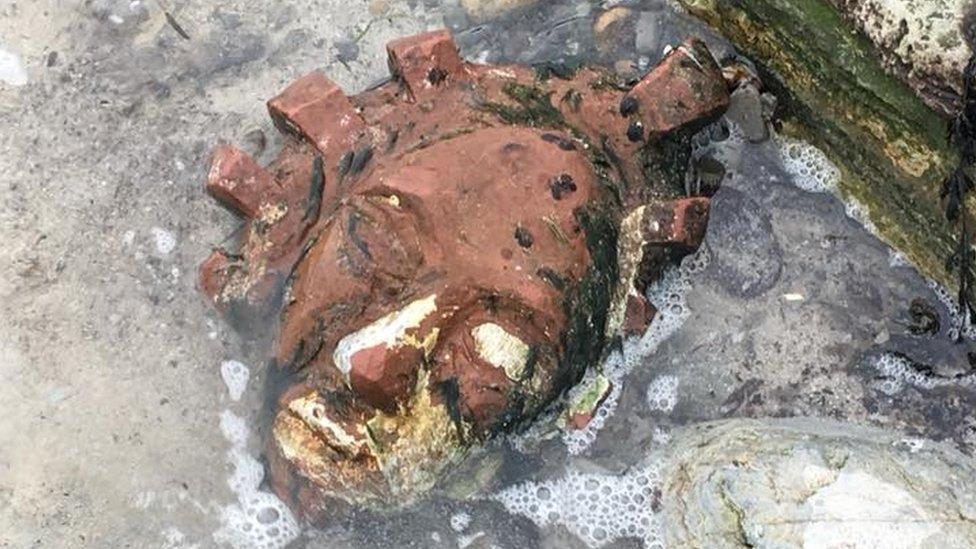Burslem: Four-letter find on Canadian beach sparks intrigue
- Published
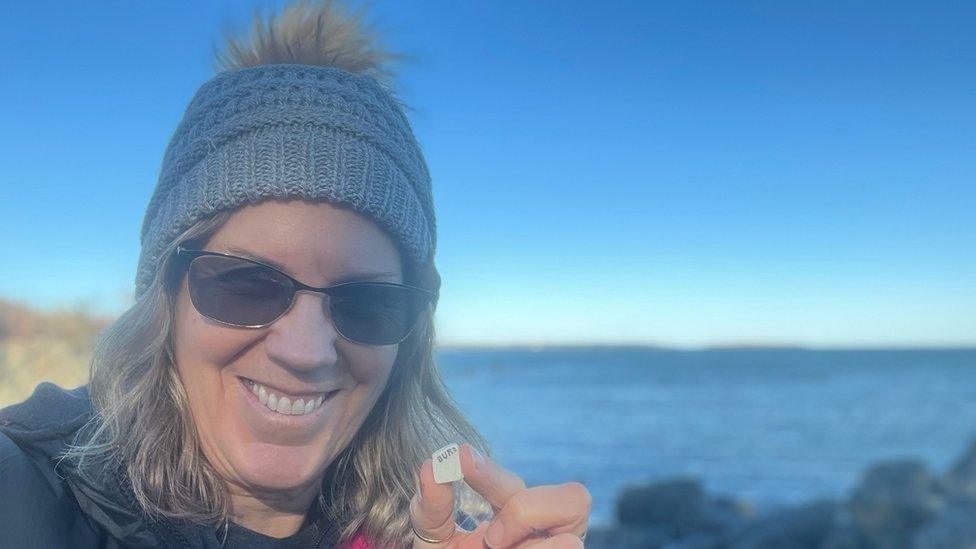
A four-letter word - or half of one - opened up the other side of the world to Canadian beachcomber Susan Benson
A Canadian woman who found a piece of Burslem pottery on a beach near her home said she was amazed by the online reaction to her discovery.
Susan Benson regularly walks on the pebbled beaches of Grand Manan Island in New Brunswick, almost 3,000 miles away from the Stoke-on-Trent town.
There she saw a pottery shard bearing only the letters "Burs", and intrigued, began to research their meaning.
On learning more, she shared her find on social media and the post "blew up".
It was "fascinating" to learn about Burslem and its pottery history, she explained.
Burslem is the oldest of the six towns making up Stoke-on-Trent and is often known as the mother town of the Staffordshire Potteries, external, having created ceramics for more than 300 years.
Works from companies including Royal Doulton and Wedgwood were created there, and, from 1894, there was also a firm named after the location. Burslem Pottery developed earthenware for domestic use before the business faded away in the 1930s, although it was revived by ceramics artist Tracey Bentley in 2009.
However, it is unclear which manufacturer is behind the piece found in Canada, with the letters potentially being a stamp of place rather than brand.
Ms Benson said: "I've learned a lot about this little tiny place from this little tiny piece of pottery. [It's been] a great history lesson. Lots of stories."
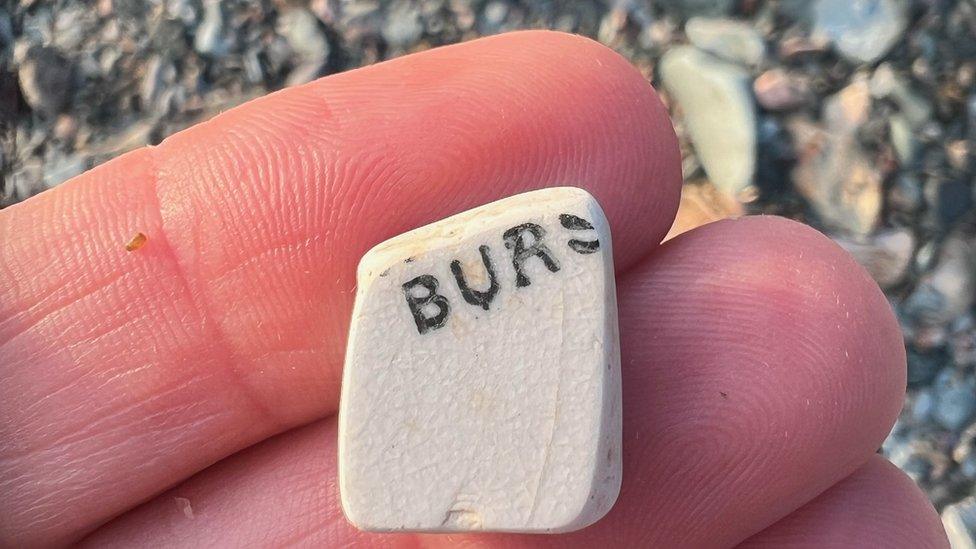
Ms Benson said she was used to discovering small treasures on the beach, but was not familiar with Staffordshire pottery heritage
Ms Benson said she was used to discovering "small treasures" on the beach, but had not been familiar with Stoke-on-Trent's pottery heritage.
That changed when she used the web to run a search on the letters, revealing Burslem's historic role in the industry.
But while the beach find did not necessarily mean the piece had made a transatlantic journey by sea, people were left intrigued once they learned of the tale.
Ms Benson uploaded an image of the piece to the Facebook group "Sea Glass Finders Keepers" where it received thousands of reactions.
There was even more chatter when the story was shared on social media pages linked closer to the city in which the pottery was made.
"The post just blew up with people saying 'hey, that's my hometown' or 'I live there'," she said.
"I can't even keep up [with] the comments. People are saying 'hey, I'm a Stokie' but I don't know what they're talking about."
Ms Benson, who has visited the UK but never Staffordshire, added: "People shared a lot of stories about working in The Potteries and about relatives that worked there then moved to Canada."
"It was fascinating to me that no matter where in the world it is, this [Burslem] is where it would have originated. That's what I find cool."
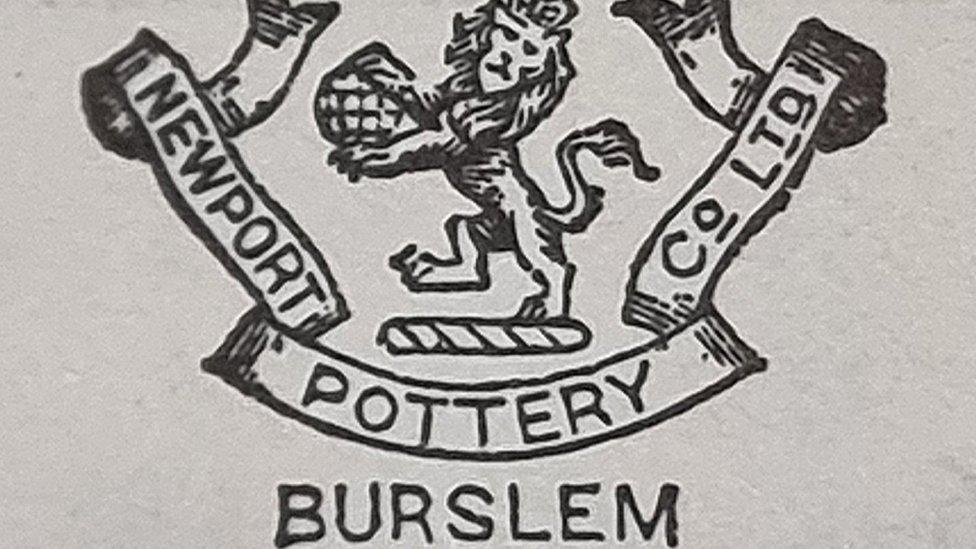
This manufacturer stamp bears the place name in a similar-looking font to the piece found on the Canadian coast
Among the comments on the original post was one from Newcastle-under-Lyme councillor Sylvia Dymond who wrote: "I have to say that from a little 'BURS' on a tiny tile, we've had a fantastic six-day thread of our city's history, and more to be revealed, judging by the comments."
Another from Jade Alsop included an image of a speck of Ironstone china made in Hanley. She wrote: "Funnily enough, my dad, when visiting the States, found some pottery from here on the beach."

Follow BBC West Midlands on Facebook, external, X, external and Instagram, external. Send your story ideas to: newsonline.westmidlands@bbc.co.uk, external
- Published22 February 2023
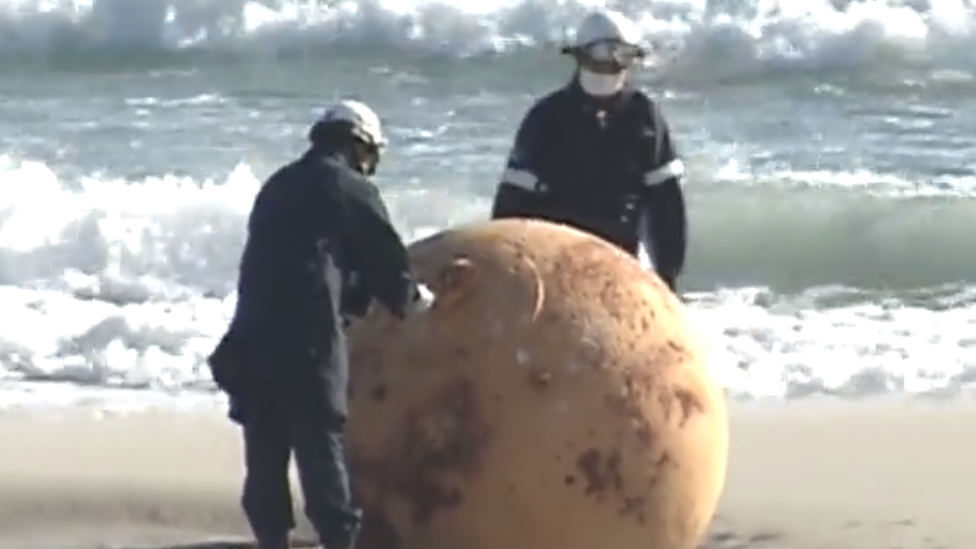
- Published8 March 2018
